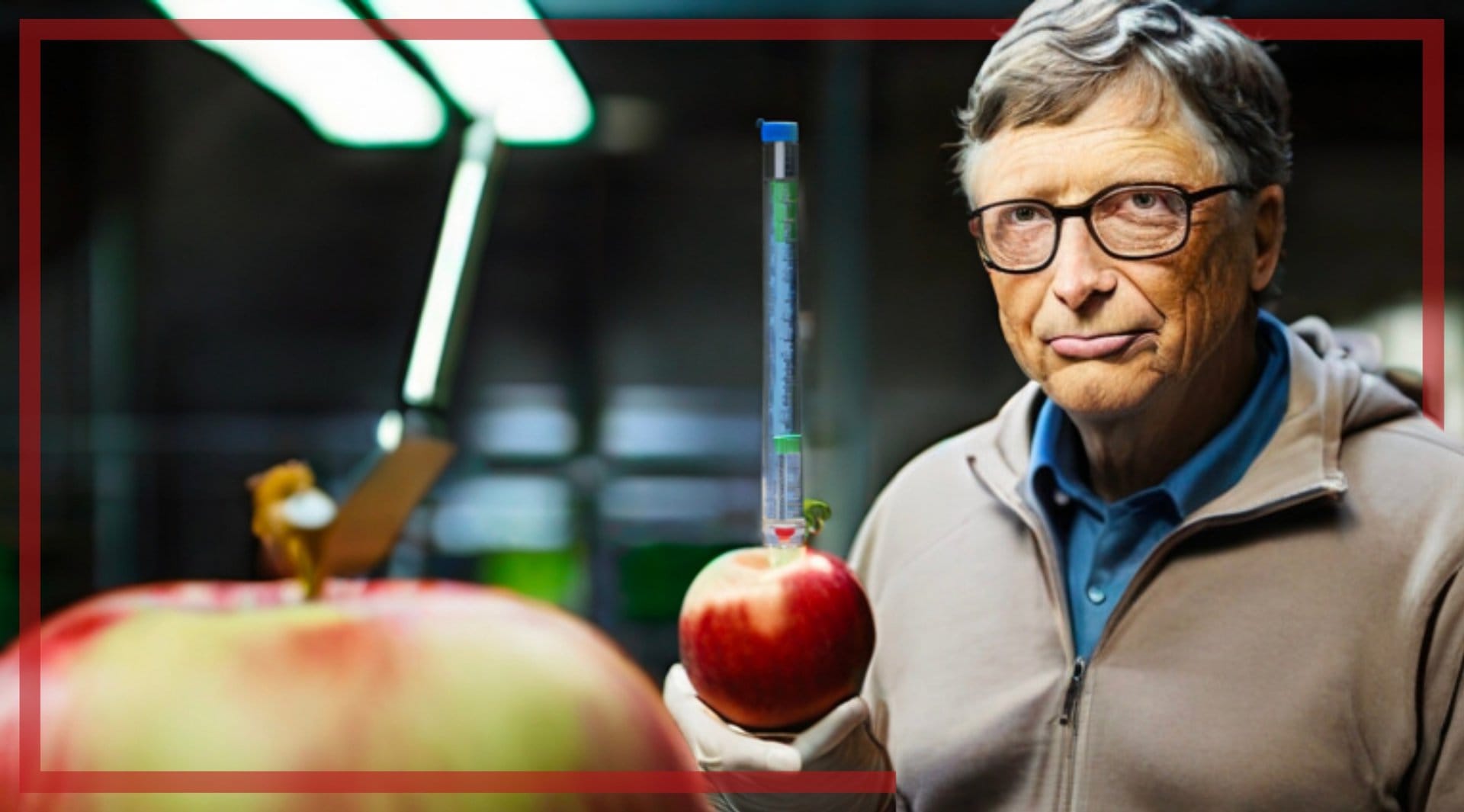In modern agriculture, Genetically Modified Organisms (GMOs) have been a contentious subject. GMOs are essentially organisms with altered genetic material using advanced engineering techniques. Using this technology, scientists can transfer individual genes from one organism to another, and even between non-related species, to give the recipient organism some specific traits not naturally found in that organism. It can also be called Genetic Manipulation.
Bill Gates, through the Bill & Melinda Gates Foundation, is one prominent businessman that has advocated for the use of GMOs as a solution to food security and agricultural challenges, especially in Africa. However, there are concerns that the downsides may be enormous for African farmers because global powers may monopolise this groundbreaking innovation.
Bill Gates’ Advocacy
In the past few years, Bill Gates, co-founder of Microsoft and one of the world’s wealthiest individuals, has pivoted his focus away from core tech and towards philanthropy, with a significant emphasis on global health and agriculture. This stems from Gates’ conviction that philanthropy goes beyond donating money, and that it’s best when it involves investing money into sectors and technology that can alleviate poverty and various illnesses. The Bill & Melinda Gates Foundation, which started in 2000, has been at the forefront of this mission. One of the key areas of the foundation’s work, according to the statement on their website, is agricultural development, particularly in sub-Saharan Africa and South Asia.
Gates’ advocacy for GMOs stems from a belief in their potential to increase crop yields, improve resistance to pests and diseases, and enhance nutritional content. “It’s pretty incredible because it reduces the amount of pesticide you need, raises productivity, and can help with malnutrition by getting vitamin fortification,” Gates said back in 2016.
For instance, the foundation has invested in the development of biofortified crops, like the genetically modified “Golden Rice,” which is enriched with Vitamin A and aimed at reducing vitamin deficiencies in developing countries.
Also, with over 100 investments in climate change startups, Gates is a firm believer that our climatic issues can be battled using GMOs in crops. For example, Gates portfolio company Rumin8 is fighting methane emission in cattle dung by using seaweed to produce supplements for cattles to eradicate methane in their faeces. Also, Gates recently stated that a lot of these companies were founded by his team. Companies like Koloma and Redwood Materials are two such companies helping in the fight against climate change.
Bill Gates: There are amazing climate technologies — getting them out is the challenge https://t.co/CyQA5yeikD
— FT Energy (@ftenergy) November 3, 2023
The Potential Benefits of GMOs
Proponents of GMOs argue that these technologies can lead to higher crop yields and more efficient use of land, which is crucial in regions with limited arable land. GMOs can also be engineered to withstand harsh climatic conditions, such as drought, which is increasingly important in the face of climate change. Additionally, certain GMOs can reduce the need for chemical pesticides, potentially decreasing environmental impact.
Concerns and Criticisms
Despite these potential benefits, the introduction of GMOs in African agriculture has been met with skepticism and resistance. Critics, like Million Belay and Bridget Mugambe, argue that GMOs could lead to increased dependence on a few major seed companies, potentially marginalising small-scale farmers. There is also concern about the long-term ecological impact, including the loss of biodiversity and the potential for GMO crops to cross-breed with native species.
Moreover, there is a socio-economic angle to this debate. Smallholder farmers in Africa often save seeds from one season to plant in the next. However, many GMO seeds are patented, meaning farmers have to purchase new seeds each season, which could increase their financial burden.
14 years later and food insecurity increased by 31%. Instead of admitting failure, he's doubling down to force GMO/chemical agriculture down the throats of Africans.
— GMO Free USA (@GMOFreeUSA) July 18, 2021
READ: https://t.co/HV6QwgGrAW
And tell Bill Gates to stop hoarding farmland in the US https://t.co/4d8M7mYvv2 pic.twitter.com/fOtOlVfF7A
The Role of Big Players like Bill Gates
The influence of the Bill and Melinda Gates Foundation on African agriculture, particularly through its support for the Cornell Alliance for Science (CAS), raises significant concerns about the future of farming practices on the continent. The CAS has been a vocal advocate for genetically modified (GM) seeds. African communities have cultivated their lands differently for centuries. In response, the Alliance for Food Sovereignty in Africa (AFSA), which represents a diverse group of African farmers and indigenous peoples, champions agroecology. This blends indigenous knowledge and contemporary science to improve the diversity, nutritional value, and quantity of food production.
But there are concerns that the Gates Foundation is pushing African agriculture and trying to reform the space into a corporate-centric and market-driven ecosystem. The current trajectory of African agriculture, heavily influenced by the Gates Foundation, seems to favour multinational corporations because of patency: companies being funded by the Gates Foundation.
Also, it’s now a trending topic that the shift towards GM seeds and intensive, commercialized agriculture, endorsed by the Gates Foundation, has not delivered the anticipated benefits for African agriculture. Moreover, there has been an increase in the number of undernourished people. This situation calls for a reevaluation of support towards initiatives that assist small-scale farmers in developing sustainable and climate-resilient farming practices.
Bill Gates’ influence in promoting GMOs in Africa is a double-edged sword. On one hand, the financial and technological resources of the Gates Foundation can drive innovation and development in African agriculture. But there is a concern that such influence could overshadow the voices and needs of local farmers and communities.
he said nothing wrong. he just said “slow down” his influence. Bill Gates had done great work when it comes to eradicating polio and fighting malaria in Africa amongst others. but his influence in agric has been heavily criticised. nobody is a saint.https://t.co/BSRjwBkP5F https://t.co/y7DQ8Goabf
— richard (@akinjide_) June 19, 2023
African Farmers: Adapting and Competing
Now African farmers face not only the challenge of adopting new technologies but also about navigating a market increasingly influenced by global players. Their successful navigation of these new terrains will depend on how they balance new technologies like GMOs with preserving traditional agricultural practices and local seed varieties.
While educating local African farmers, and giving them access to resources, such as credit, is a crucial endeavour. African political leadership and lawmakers should include policies that protect the rights and interests of smallholder farmers.
Author: Makinde Adeniyi
#Africa #BillGates #Agriculture #GMOs #Development















